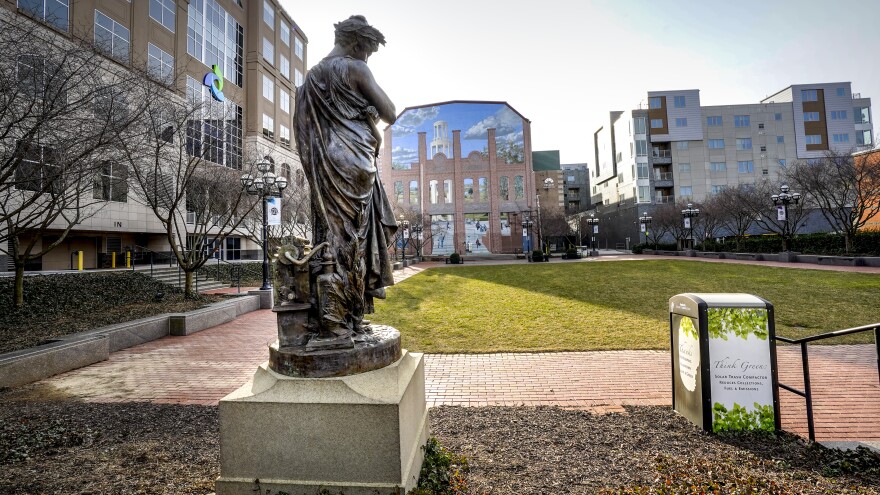ALLENTOWN, Pa. — Muhlenberg College students on Monday shared their ideas for the city’s first climate action plan.
The students presented their projects, such as initiatives aimed at lowering food waste, and renewable energy, during the city Environmental Advisory Council’s monthly meeting.
“They’ve been working for about six, seven weeks on developing potential projects that could be included in Allentown’s Climate Action Plan as you start to work on that project,” Muhlenberg senior lecturer Kimberly Heiman said.
Heiman teaches the class, focused on local sustainability.
The projects, all by seniors at the college, were developed in partnership with Veronika Vostinak, the city’s sustainability coordinator, Heiman said.
When the plan is complete, Allentown will be the third of the Lehigh Valley’s major cities to publish a climate action blueprint.
‘Advise the advisory council’
For the project, each group was assigned a sector, including solid waste, water, energy and transportation.
"We’re trying to advise the advisory council how to proceed.”Judah Teitelbaum
“This is Allentown’s first Climate Action plan,” Judah Teitelbaum said. “So, we’re trying to advise the advisory council how to proceed.”
Teitelbaum’s group focused on reducing solid waste by implementing a citywide composting program, as well as introducing low waste certifications for businesses.
Another of the projects focused on protecting water quality while promoting sustainability and green jobs. Initiatives included greywater systems, green infrastructure such as rain gardens, and energy-efficient wastewater treatment plants.
A project focused on residential electricity highlighted the wide availability of solar programs across Pennsylvania, but low engagement.
To fill the gap, a student proposed developing local incentive programs to encourage residents to invest in energy-efficient upgrades.
“In order to reduce greenhouse gas emissions from commercial buildings, the Allentown Climate Action Plan should focus on decreasing emissions from existing commercial buildings,” Rama AlAli said.
“As well as ensure new commercial buildings are built to minimize emissions.”
Initiatives included implementing a building energy benchmarking requirement and an energy-saving equipment procurement policy, as well as creating a clean energy upgrade program for commercial buildings.
More projects, plan underway
Kira Wiener and Ingrid Stokes’ presentation spotlighted renewable natural gas, captured from landfills and other sources.
A primary goal would be to require commercial and municipal buildings to transition to renewable natural gas by choosing a different supplier through UGI, the local utility provider.
Another project aimed at reducing transportation emissions 15% by 2040. One proposal called for creating a car-free zone in the city, possibly on West Court Street near the Arts Park, or on Hamilton Street in front of the new Archer Music Hall.
Other ideas included a bike-share program with drop-off and pick-up stations around the city, as well as installing smart traffic signals.
Work on the climate action plan is underway. Last month, the city launched a survey for residents to share their priorities when it comes to climate change mitigation strategies.


